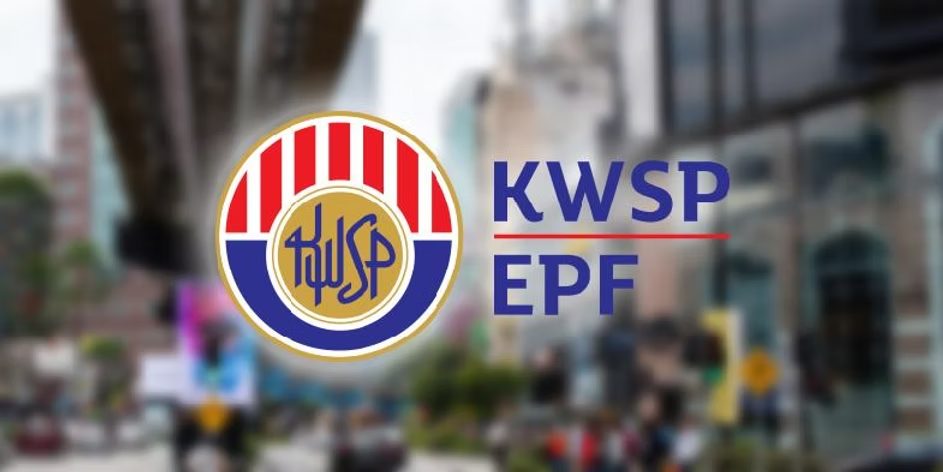The Malaysian government has recently reaffirmed its commitment to implementing mandatory Employees Provident Fund (EPF) contributions for foreign wor...
5 Essential Tax Tips for JMBs and MCs in sia

Managing the finances of a Joint Management Body (JMB) or a Management Corporation (MC) can be a challenging task. Among the many responsibilities is ensuring compliance with Malaysia’s tax regulations. Public Ruling 1/2015, issued by the Inland Revenue Board of Malaysia (IRBM), along with the latest tax guidelines, offers crucial guidance on how JMBs and MCs should handle taxation. In this comprehensive guide, we’ll expand on five essential tax tips, incorporating key details from the guidelines to help your JMB or MC remain compliant and efficient.
1. Understand the Principle of Mutuality
One of the cornerstones of taxation for JMBs and MCs is the principle of mutuality. This principle dictates that income received from members—such as maintenance fees and sinking funds—is generally not taxable. The rationale is simple: these funds are collected for the mutual benefit of the members and not for profit-making purposes.
What Does This Mean in Practice?
If a JMB collects RM 100,000 in maintenance fees from its members to cover utilities, cleaning services, and security, this income is not considered taxable. However, the distinction becomes crucial when income is derived from non-members. For instance, if the JMB rents out a portion of the property to a third-party vendor for RM 50,000 annually, this income falls outside the scope of mutuality and is taxable.
Common Misunderstandings
Many JMBs and MCs mistakenly believe that all their income is exempt under the mutuality principle. However, non-member income, such as rental income from third parties or revenue from advertisements, must be clearly identified and declared. Failure to do so could lead to penalties.
2. Taxable Income from Non-Members
While income from members enjoys exemptions, any income derived from non-members must be declared and taxed accordingly. Examples of taxable income include:
Rental Income: If the JMB rents out facilities such as a function hall, parking lots, or commercial spaces to third parties.
Advertising Revenue: Income earned from allowing advertisements on the property premises, such as banners or digital screens.
Interest Income: Earnings from fixed deposits or other investments made with surplus funds.
Updated Guidelines on Taxable Income
According to the guidelines, taxable income includes:Income from Non-Members: For example, fees for the use of shared property like a gym or swimming pool by non-members.
Investment Income: Such as interest or dividends earned on sinking funds or other investments.
Income from Business Activities: Including rental income for leasing common areas like halls or parking spaces to businesses.
Steps to Ensure Compliance
Segregate Income Sources: Maintain clear records that separate member-related income from non-member income. For example, create distinct ledger accounts for maintenance fees and rental income.
Regular Audits: Conduct periodic audits to ensure all taxable income is accurately reported.
Consult Professionals: Engage with tax professionals who specialize in strata property management to ensure you’re meeting all tax obligations.
Example
Consider a scenario where a MC earns RM 20,000 in rental income from third-party parking spaces. This amount must be included in the MC’s tax filing, separate from the RM 200,000 collected in member maintenance fees. Properly distinguishing these income streams avoids confusion and ensures compliance.
Updated Guidelines on Records
The guidelines emphasize that developers or management bodies must maintain separate records for income and expenses related to transactions with members and non-members. Failure to maintain proper documentation may lead to compliance issues and penalties.
4. File Tax Returns Promptly Using Form TF
JMBs and MCs are required to file annual tax returns using Form TF. In Malaysia, the basis period for Form TF is the calendar year. Meeting filing deadlines is crucial to avoid penalties or interest charges imposed by the IRBM.
Filing Deadlines
The submission deadlines for Form TF depend on the source of income:
Non-Business Income: The deadline is 30 April of the following year.
Business Income: The deadline is 30 June of the following year.
For example, for income earned in the year ending 31 December 2024, the tax return must be submitted by 30 April 2025 (for non-business income) or 30 June 2025 (for business income).
Updated Filing Guidance
The guidelines clarify that JMBs and MCs must distinguish income sources to ensure accurate reporting. Income from mutual transactions with members is generally not taxable, while income from non-members or investments must be reported.
Key Considerations When Filing
Ensure Accuracy: Double-check all entries and calculations before submission.
Include All Supporting Documents: Attach relevant financial statements and records to substantiate your tax filing.
Pay Taxes on Time: Any tax due must be paid by the filing deadline to avoid late payment penalties.
Avoiding Common Pitfalls
Procrastination: Start preparing your tax return well in advance to avoid last-minute errors.
Misclassification of Income: Ensure income is correctly categorized to prevent underreporting.
Overlooking Tax Deductions: Familiarize yourself with allowable deductions to minimize taxable income.
5. Seek Professional Advice When Needed
Tax regulations for JMBs and MCs can be complex and subject to change. Engaging a tax consultant or professional accountant can provide invaluable support.
Benefits of Professional Guidance
Compliance Assurance: Professionals stay updated on the latest tax laws and rulings, ensuring your JMB or MC remains compliant.
Tax Efficiency: An expert can help identify legitimate deductions and exemptions, reducing your tax liability.
Peace of Mind: Knowing your taxes are handled correctly allows you to focus on managing the property.
Choosing the Right Professiona
When selecting a tax consultant, look for professionals with experience in strata property management. Check reviews, ask for recommendations, and ensure they have a solid understanding of Public Ruling 1/2015 and the updated guidelines.
5. Seek Professional Advice When Needed
Tax regulations for JMBs and MCs can be complex and subject to change. Engaging a tax consultant or professional accountant can provide invaluable support.
Benefits of Professional Guidance
Compliance Assurance: Professionals stay updated on the latest tax laws and rulings, ensuring your JMB or MC remains compliant.
Tax Efficiency: An expert can help identify legitimate deductions and exemptions, reducing your tax liability.
Peace of Mind: Knowing your taxes are handled correctly allows you to focus on managing the property.
Choosing the Right Professional
When selecting a tax consultant, look for professionals with experience in strata property management. Check reviews, ask for recommendations, and ensure they have a solid understanding of Public Ruling 1/2015 and the updated guidelines
Bonus Tip: Stay Informed About Regulatory Changes
Tax laws and guidelines evolve over time. Staying informed about updates from the IRBM ensures you’re always prepared. Subscribe to newsletters, attend seminars, and regularly consult with your tax advisor to stay ahead.
Conclusion
Navigating tax obligations can be daunting for JMBs and MCs, but with the right approach, compliance becomes manageable. By understanding the principle of mutuality, segregating taxable income, maintaining accurate records, filing returns promptly, and seeking professional advice, you can ensure smooth operations and avoid unnecessary penalties. Public Ruling 1/2015 and the updated guidelines provide a solid framework to guide you—make them your reference points for effective tax management.
For further assistance, don’t hesitate to reach out to a tax professional who can tailor solutions to your JMB or MC’s specific needs. Remember, proper planning today can save you significant time and resources in the future.
Recent Posts
All PostsIn Malaysia, strata properties are governed by the Strata Management Act 2013 (Act 757), which includes specific guidelines on financial reporting. An...
Building a strong financial foundation is crucial for the long-term success and stability of any strata property. Whether you are part of a newly esta...


